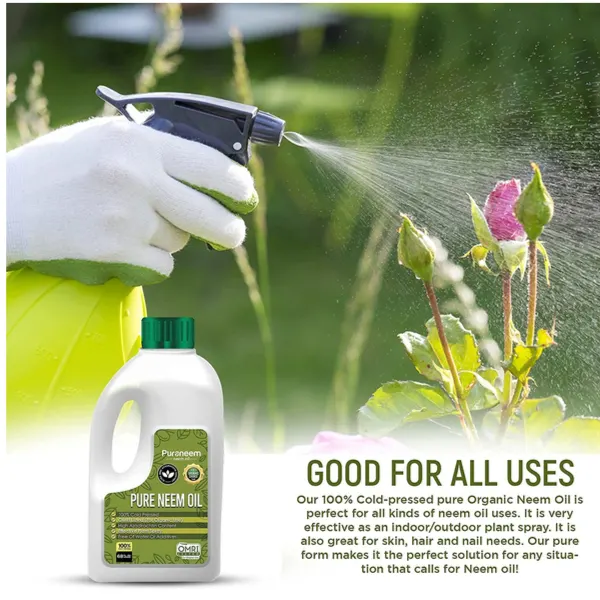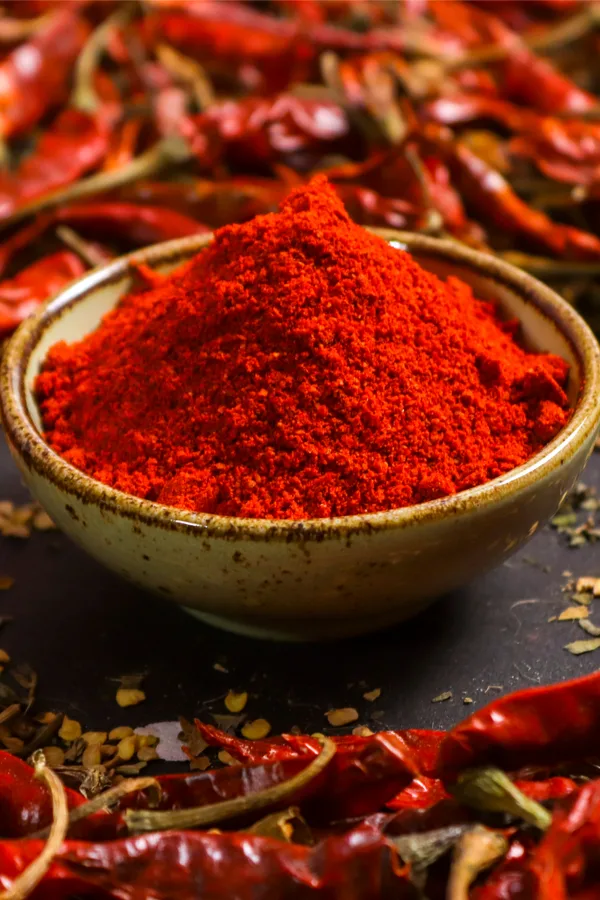Looking for a few great ways to eliminate and stop aphids from ruining the plants in your garden and flowerbeds – all without having to resort to harsh chemical sprays or powders?
Aphids are one of the biggest culprits when it comes to destroying annuals, perennials and vegetable gardens. They can also do quite a number on houseplants as well! Unfortunately, once they establish on a plant, they can multiply in the blink of an eye.
Whether its a young tomato plant in the garden, or a tender rose bush, aphids can quickly take over and decimate a plants foliage, blooms and fruit. Not only can they leave the plant weak, they can also spread disease to it and nearby plants as well.

There are over 200 species of aphids that attack plants. Once they establish on a plant, they can quickly jump to others, infesting an entire area. Once they do, it can be difficult to get them under control.
One of the things that make aphids so deadly is how fast they can reproduce. In fact, without any control measures in place, they can triple their colony size in as little as 3 days. Imagine what can happen in 6 or 9 nine days!
What really makes them hard to fight is they can be hard to find until its too late. They often establish and lay their eggs on the undersides of leaves, where it can be nearly impossible to see them multiplying. That is, until it’s too late and the plant starts to suffer.
Safe And Simple Methods To Eliminate Aphids
Aphids feed on plants by attacking tender new shoots, stems and foliage. Aphids pierce the outer skin of these areas to devour the plant’s sap.
As plants lose the sap, they lose their source of nutrients. And before you know it, their leaves are gone, and the plant’s demise is sealed. As mentioned, aphids also carry and spread disease easily among the plants they inhabit.
This can be especially devastating to vegetable gardens as disease spreads quickly from plant to plant. One little infestation of aphids on a single plant can quickly turn into a large garden loss if not eliminated.
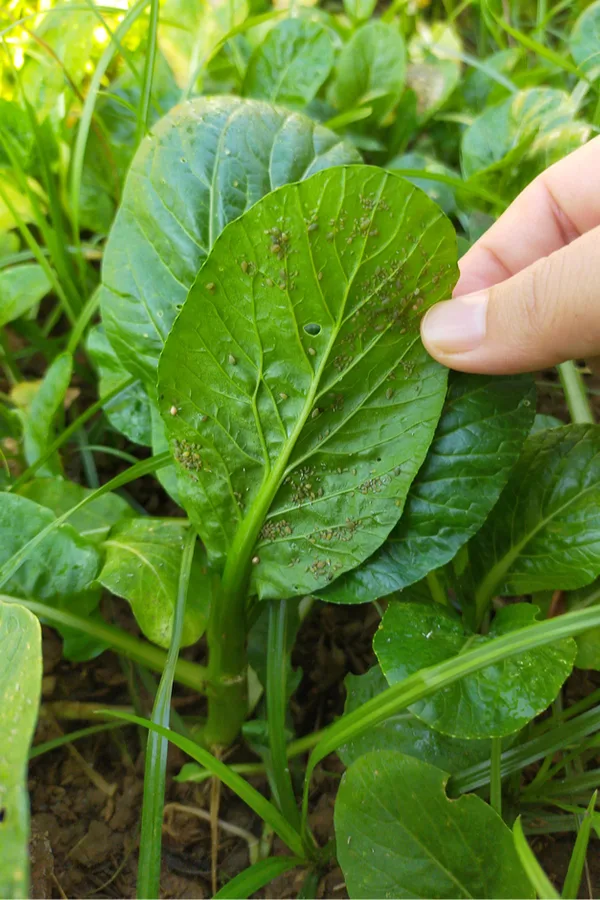
Believe it or not, you don’t have to resort to harsh sprays or chemical powders to get the upper hand on aphids. In fact, although there are commercial available products that can kill off aphid populations, they often take out many beneficial insects as well.
That can leave your plants susceptible to even more damage from the next pest that comes along. With that in mind, today we’ll take a look at 6 simple but effective keys to stop aphids in their tracks. And at the top of that list is to always keep your eyes open for the first signs of trouble!
Early Detection – The #1 Key To Success!
More than anything else, early detection of an aphid problem is key! Aphids are nearly invisible to the naked eye, especially when it comes to their tiny offspring. But spotting them or the signs of their damage early can make keeping them in check much easier.
Start by keeping an eye out for any tell-tale signs of damage. Aphids love to hang out on the underside of leaves, so be sure to inspect these areas of your plants on a regular basis.
Curly leaves or the yellowing of leaves are another early sign of aphids, as are bloom shoots that show signs of damage. Aphids start by attacking the most tender and easy to devour sap, so be sure to inspect new growth or blooms for any signs of damage.
Remember, aphids can go from an egg to an aphid nymph in as little as a day or two! So the key to controlling them begins with getting to them before they multiply!

Spraying Water To Eliminate Aphids
If you spot an early infection, one of the easiest and most effective ways to eliminate aphids or their freshly laid eggs is with a powerful blast of water.
An aphids body is quite small and frail. As are the eggs they lay on the underside of leaves. Both can be easily washed off of the foliage with a good spray from your garden hose.
As you spray, be sure to hit the underside of leaves where most of the aphids like to to live. Knocking them off in this fashion will most likely result in the eggs being unable to hatch. And even if they do, their is no easy food source for them to consume to stay alive.
One note of caution, when spraying with water, always be careful to not spray so hard that you damage plants or remove fragile blooms or young fruit.
Neem Oil – How To Eliminate Aphids
If your aphid issue is more on the serious side, it may require a more direct approach. For this, you can use an application of organic Neem oil. This is great for getting quick control of an exploding aphid population.
Neem oil is made by pressing oil from the seeds of the fruit of the neem tree. And that oil has some pretty amazing qualities against aphids. In fact, it can help against all kinds of other insects and pests too. Best of all, it is 100% organic and all-natural.
Neem Oil also has the benefit of not harming important pollinators such as butterflies and bees. That is a huge advantage over commercial sprays which do not discriminate in the insects they kill off.
For more on neem oil, check out our article on our sister site, This Is My Garden. See: How To Use Neem Oil – The Organic Solution To Pest & Disease Control!
Hot Pepper & Garlic Oil Spray – How To Eliminate & Stop Aphids
If neem oil is not your cup of tea, you can make your own homemade aphid killer spray with hot pepper and garlic.
To make, puree up 4 large garlic bulbs and 4 to 6 hot peppers in a blender. Cayenne, Serrano, Jalapeno peppers or any medium to hot pepper will work well. If you do not have fresh peppers, you can also use four teaspoons of ground cayenne power in their place.
Place the ingredients into a gallon jug and fill with water. Let the mixture steep for at least 12 hours, and then strain and apply with a pump sprayer to the foliage of the infected plants.
You can also add in a few drop of mild liquid dish soap to help the mixture stick to plants better. You will need to reapply after any hard rain or watering for maximum effectiveness.
Attracting Predatory Insects – How To Eliminate Aphids
Another great way to keep aphid populations in check is by attracting their predators to your landscape. And one of the best to attract are lady bugs!
Lady bugs can eat several times their body weight in aphids. In short order, they can quickly decimate an aphid population. In addition, lacewings and butterflies work well to stop aphids too.
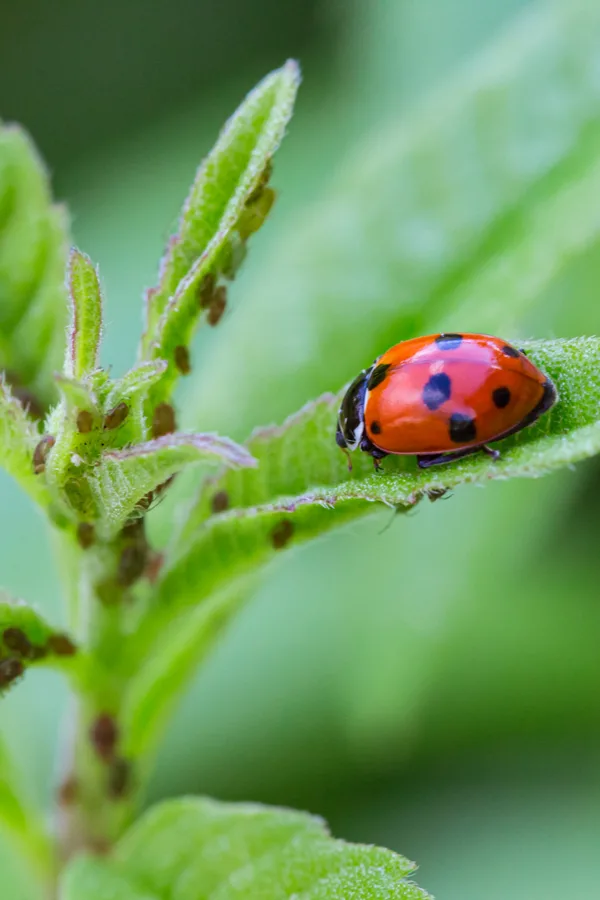
All of these beneficial insects love to live in gardens and flowerbeds loaded with flowering herbs. To bring them calling, plant dill, oregano, yarrow and coriander, which are among their top favorites.
If you don’t want to plant herbs directly into your garden or flowerbeds, plant in pots and containers and place in areas you would like to protect. It will certainly bring the beneficial insects calling.
This is actually a form of companion planting, which is another incredible way to stop aphid issues before they ever start.
Companion Planting – How To Eliminate & Stop Aphids
Companion planting is the practice of growing plants to benefit a specific gardening area. It can be used to help protect another plant, to repel certain pests, or to help attract beneficial insects like the lady bugs mentioned above.
When it comes to aphid control, one of the best for growing is the marigold. In fact, aphids simply can’t stand to be around them! The pungent smell of the plant’s foliage and blooms keeps aphids far away, and keeps other nearby plants safe in the process.
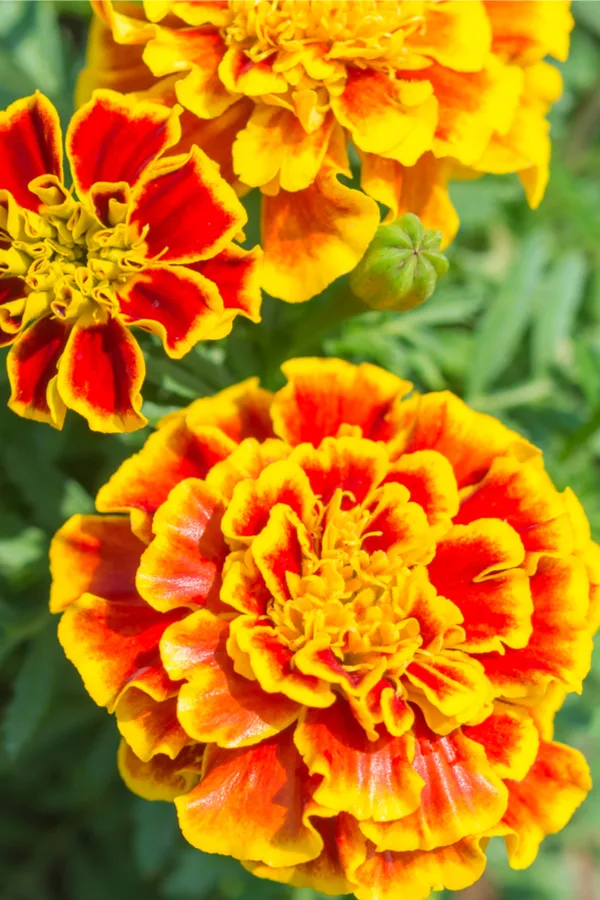
In addition to marigolds, nasturtiums are another annual that will work against aphids. Nasturtiums produce a chemical marker that is offensive to a whole slew of pests. It is a wonderful addition to the landscape to help keep pest issues at bay naturally.
Here’s to keeping your garden and flowerbeds healthy and free of an aphid invasion! Happy Gardening, Jim and Mary.
Jim and Mary Competti have been writing gardening, DIY and recipe articles and books for over 15 years from their 46 acre Ohio farm. The two are frequent speakers on all things gardening and love to travel in their spare time.
As always, feel free to email us at thefarm@owgarden.com with comments, questions, or to simply say hello! You can sign up for our free email list in the subscribe now box in the middle of this article. Follow us on Facebook here : OWG Facebook. This article may contain affiliate links.

